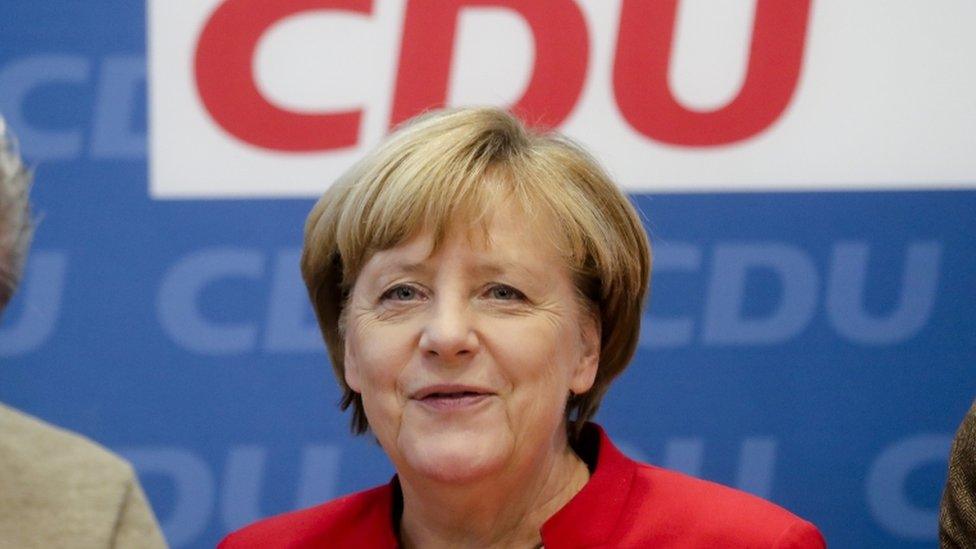Europe's dangerous milestones
- Published
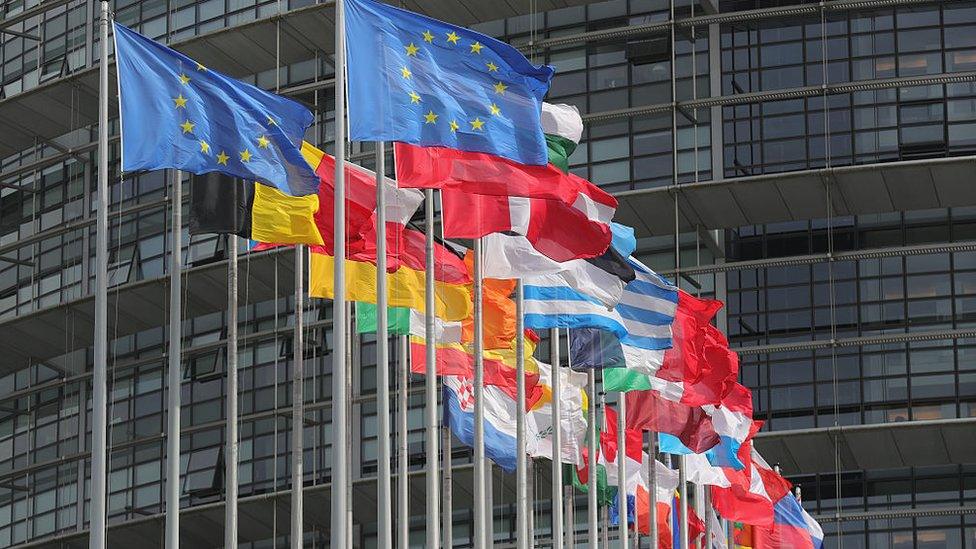
The dates stretch out over the months ahead; days in the calendar that could define Europe's values and shape the future of liberal democracy.
In the shadow of Donald Trump's victory and - to a lesser extent - Brexit, Europe faces a series of crucial votes. Although some of the anti-establishment strains in Europe are different from those in America, many of them are the same and equally potent.
The US election was not just a cry of frustration from those left behind by globalisation and stranded in the Rust Belt. The Trump campaign attached great importance to what it saw as a revolt against the politically correct, the exasperation with gender and racial politics, and a yearning for an older, simpler identity.
Brexit featured a revolt by large sections of the working class long taken for granted by the elites. The more heavyweight the appeals to stick with the status quo, the more determined their defiance.
Nigel Farage of UKIP declared after the American election that the "democratic revolution" is only just beginning. Yet in Europe there are some signs that the uncertainties swirling around Britain's future have deterred voters from turning their backs on the EU. The months ahead will determine whether the anti-establishment rebellion is still growing.

French presidential election: April/May 2017
France will prove the greatest test in 2017. In the highly unlikely event of Marine Le Pen winning the French presidency, she has not disguised her ambition: "We want to destroy the EU," she has said. And if France in a referendum voted to leave the EU, an institution it has helped create and mould, it would mark the end of the European project.
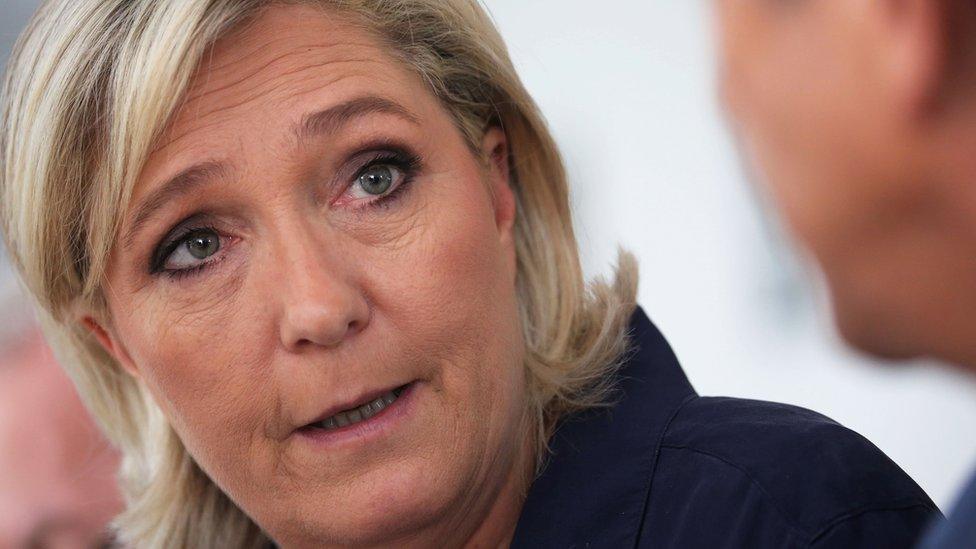
French National Front leader Marine Le Pen will be a candidate in the 2017 election
With the left divided and discredited we now know who Marine Le Pen's main opponent is likely to be. There is an element of protest in the emergence of Francois Fillon as the presidential candidate of the centre-right.
His support lies with the provincial bourgeoisie, uncomfortable with adoption rights for gay couples and patriotic. Fillon insists that "French foreign policy must serve French interests," much as Donald Trump insisted that he would put "America first".
"France," says Fillon, "can't bear its decline." He has promised to reduce immigration "to a minimum" and forge closer links with President Putin of Russia.
Le Pen's problem, unlike with Donald Trump, is that neither she nor her party are new. She is a political outsider but she is not a fresh face and will struggle to surmount her party's far-right history. Over the weekend the President of the European Commission, Jean-Claude Juncker, said she would not be the next president of France - but after the political earthquake in America there are fewer certainties.

Italian constitutional referendum, 4 December 2016
Next Sunday, Italians go to the polls. With its high debt, its weak banks stuffed with non-performing loans, it is the country that carries the greatest risk for the eurozone.
Prime Minister Matteo Renzi has gambled his future on winning a referendum on constitutional reform. The changes would reduce the power of the Senate and make Italy easier to govern.
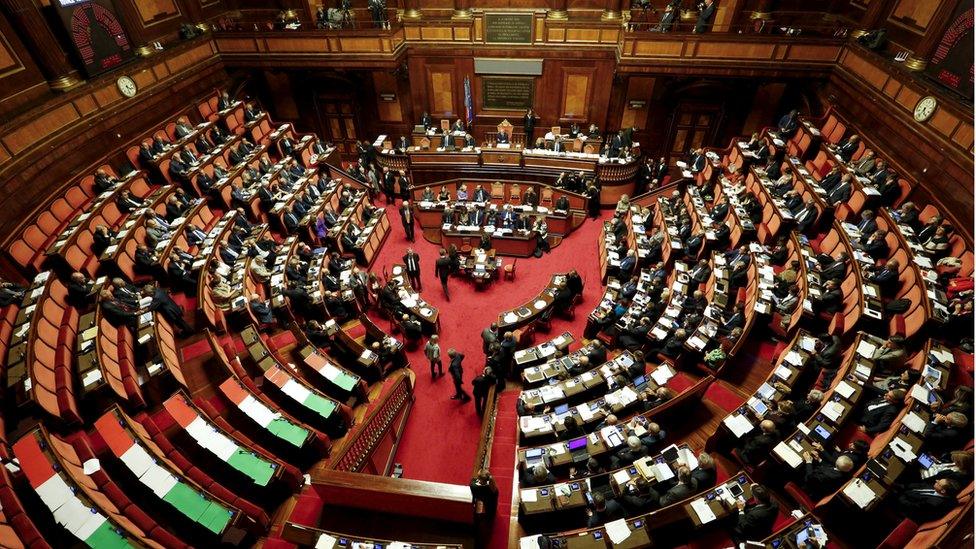
Reform of the country's Senate is a focus of the Italian referendum
That was the plan but in Italy, too, there are signs that voters are less focused on the details of the reforms than on making the referendum about the government.
If Renzi loses he will be under pressure to resign, sparking a political crisis with the prospect of early elections. And a period of instability could increase Italy's borrowing costs.
Anti-establishment parties are polling strongly. Italy is a front line in the refugee crisis. Its economy is stagnant. GDP is nearly 9% less than it was a decade ago.
The populist Five Star Movement is proving resilient and has hinted it might hold a referendum on the euro. The Northern League, led by Matteo Salvini, an ally of Marine Le Pen in the European Parliament, also has growing support. The League opposes the euro.
The referendum result looks close. Italy without Renzi at the helm would deliver another tremor to the European project.

Austrian presidential election, 4 December 2016
On the same day - 4 December - Austria will decide whether to elect Europe's first post-World War Two head of state drawn from the far right.
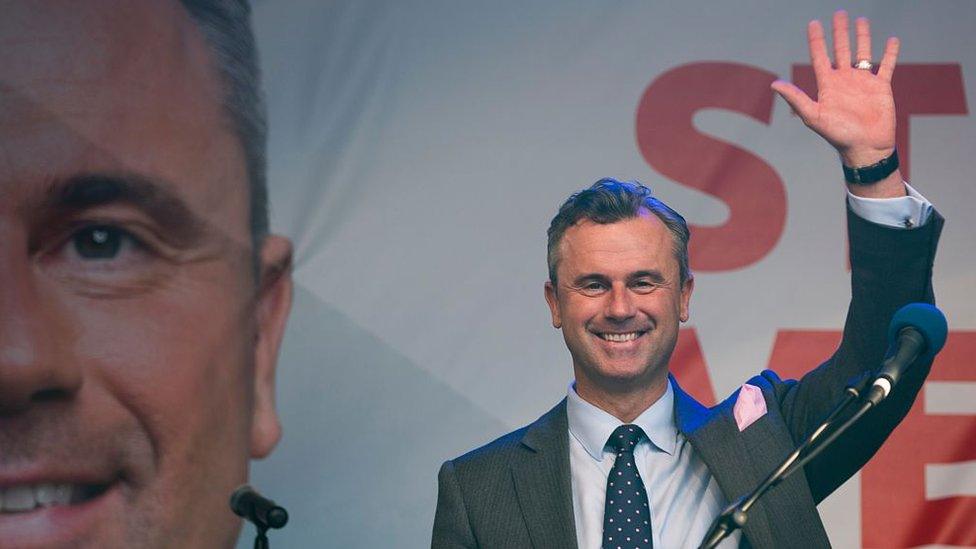
Austrian Freedom Party presidential candidate Norbert Hofer
Norbert Hofer is the candidate of the Freedom Party, although he has tried to distance himself from its extreme past. He has built his support around the themes of opposing immigration and Islamic extremism.
Like Donald Trump, he sees voters rejecting the values of the mainstream media. He doesn't rule out holding a referendum on Austria's membership of the EU. The Austrian presidency has limited powers but if Hofer is successful it will be a further signal of Europe's revolt against the centre.

Netherlands parliamentary election, 15 March 2017
And then in March the Dutch get to vote. In some polls the anti-Islam and radical right politician Geert Wilders is in the lead. In the past, his performance in the polls has not been matched by votes actually cast.
He is currently on trial for hate speech, after leading a chant for fewer Moroccans in the country. Wilders likes to align himself with Trump and speaks of a worldwide movement "making short shrift of the politically correct doctrines of the elite and their subordinate media".

German federal election, between August and October 2017
In April and May the focus will be on France's presidential election before the Germans vote in September. Angela Merkel is standing again despite her admission that she would have done things differently over accepting more than a million refugees.
Germany, too, has its anti-establishment party, the AFD. It has performed well in some state elections but there seems little appetite for a wider revolt against a political establishment that has delivered stability, a strong economy and leadership in Europe.
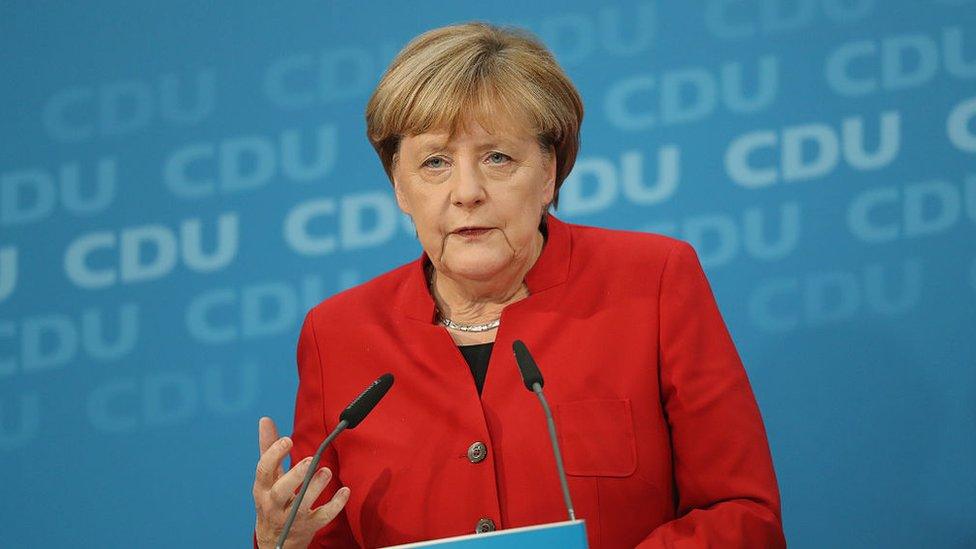
Angela Merkel says she will stand for a fourth term as Germany's chancellor
Some now cast Angela Merkel as the leader of the free world. She has dismissed such suggestions but she defines herself as the candidate for openness, for free trade, for a tolerant, inclusive Europe.
Europe's anxieties and restlessness feed into the negotiations with the UK over Brexit. The rise of anti-establishment parties stiffens the resolve of many of Europe's leaders not to make any concessions to Britain that might attract support for politicians like Le Pen in France.
These voices outnumber those who see the sense in keeping the UK as close as possible to the EU and its markets.
In Europe there are different priorities driving politics. In France it is unemployment. In Italy it is the economy. Elsewhere it is migration and the threat to identity.
But the next few months will put a central question to the test. Can Europe's centre parties, can its institutions, can its elites win the argument or will the structures that have built modern Europe be weakened by a popular revolt?
Democracy, as Barack Obama recently told Europeans, is "hard work". Europe has dates in the diary that will define its future.
- Published27 November 2016
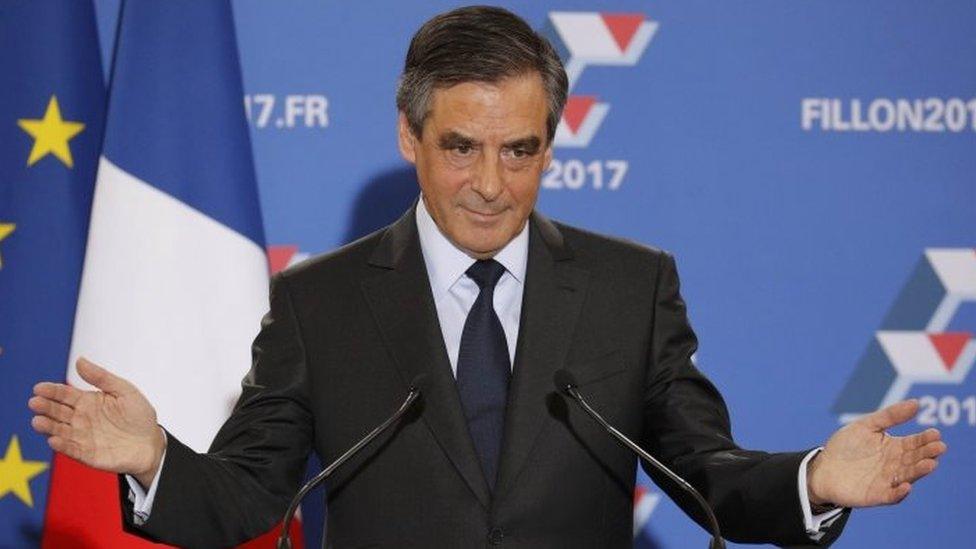
- Published29 September 2016
- Published24 November 2016
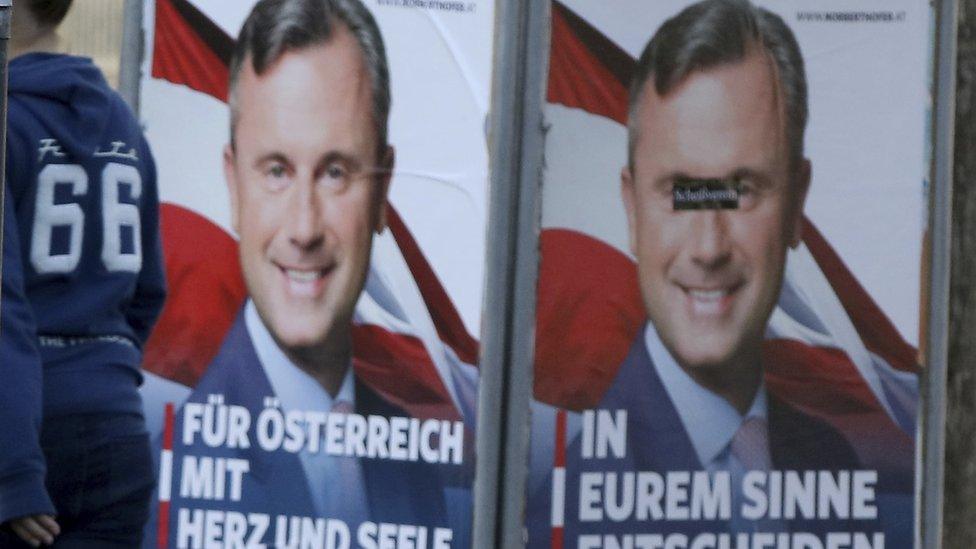
- Published23 November 2016
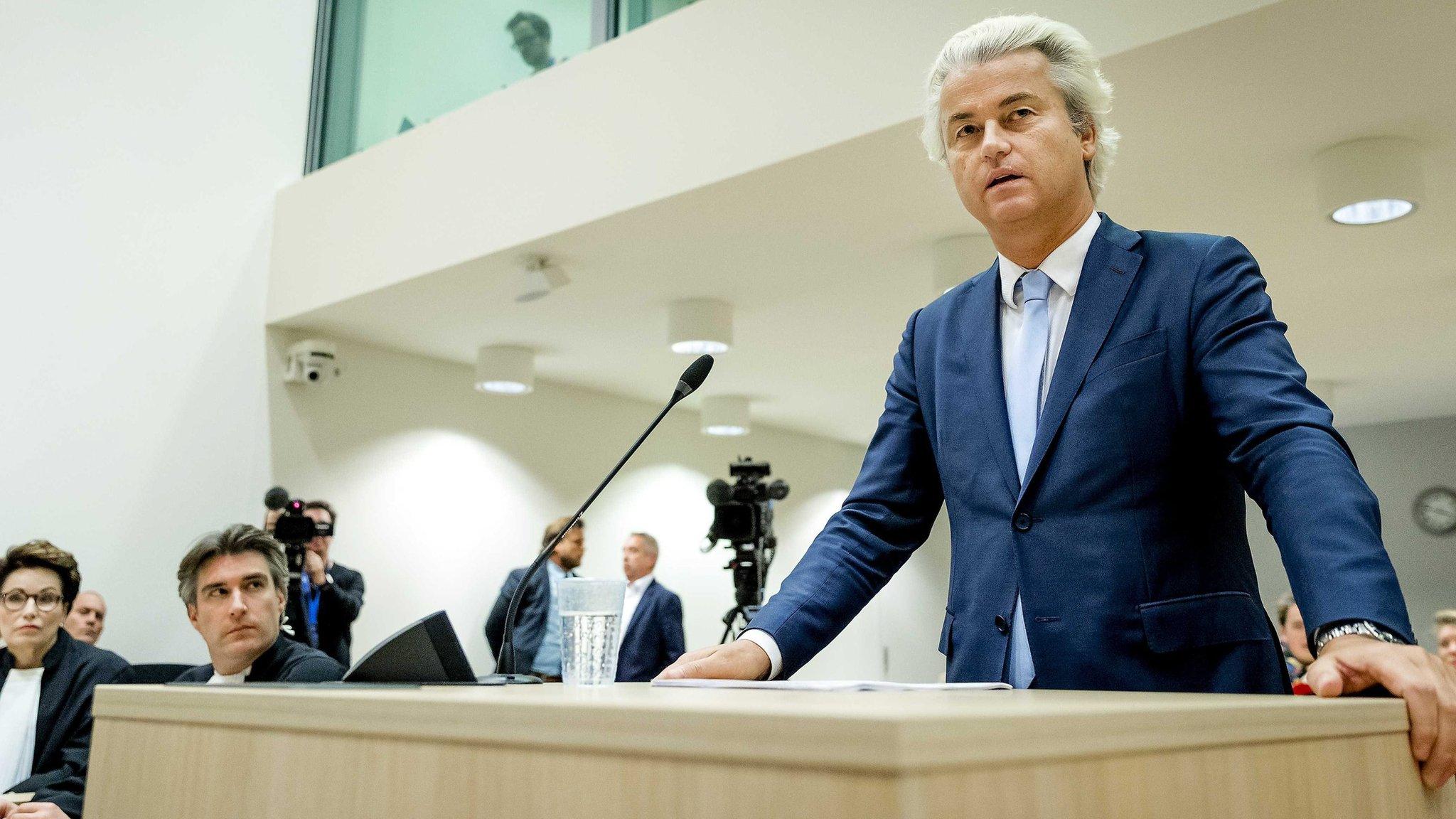
- Published21 November 2016
